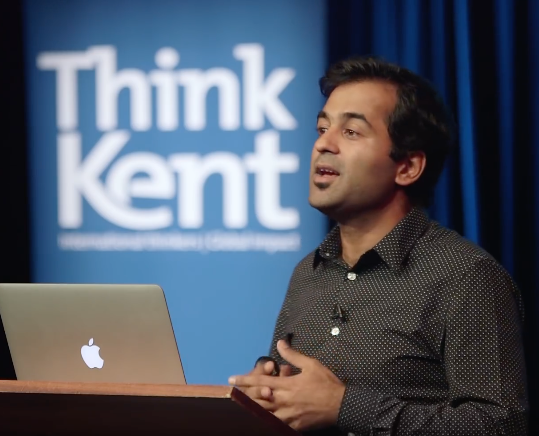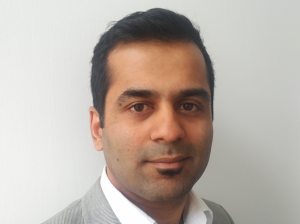As part of the University of Kent Think Kent series a collection of YouTube videos celebrating research with international impact at the University – Dr Srivas Chennu explains The Mohawk of Consciousness: Neuroscience, Computing & Assessing Awareness.
Awareness and the presence of intent, both in everyday life and in the clinic, are inferred primarily through our behaviour. But what if you were aware but unable to express it? Modern neuroscience is uncovering rare but remarkable examples of such awareness in the so-called vegetative state, with profound implications for a caring society. Using visualisations and data, I will highlight what current neuroscience research can tell us about the neural correlates of consciousness in health and disease. This understanding is helping us identify crucial brain networks that could support hidden awareness in some seemingly vegetative patients.
Dr Srivas Chennu is a lecturer at the University of Kent, and a senior research associate at the University of Cambridge. He received a PhD from the University of Kent, specialising in computational neuroscience and cognitive electroencephalography (EEG).
His current research studies how the brain mechanisms underlying consciousness are altered in sleep, sedation and the vegetative and minimally conscious states. He is working on applying this knowledge to improve diagnostic and prognostic decision making for patients in these states. He has shown that EEG can be used to characterise networks of brain activity, detect covert attention and even awareness in patients, right at their bedside.
His topical research programme has received considerable scientific, public and international media interest, including from BBC Radio 4 Today, World Service, Discovery Channel, Wired Magazine, New Scientist, The Washington Post and Der Spiegel.
Srivas’ video is the latest in a series recorded by academics in the School of Computing.


